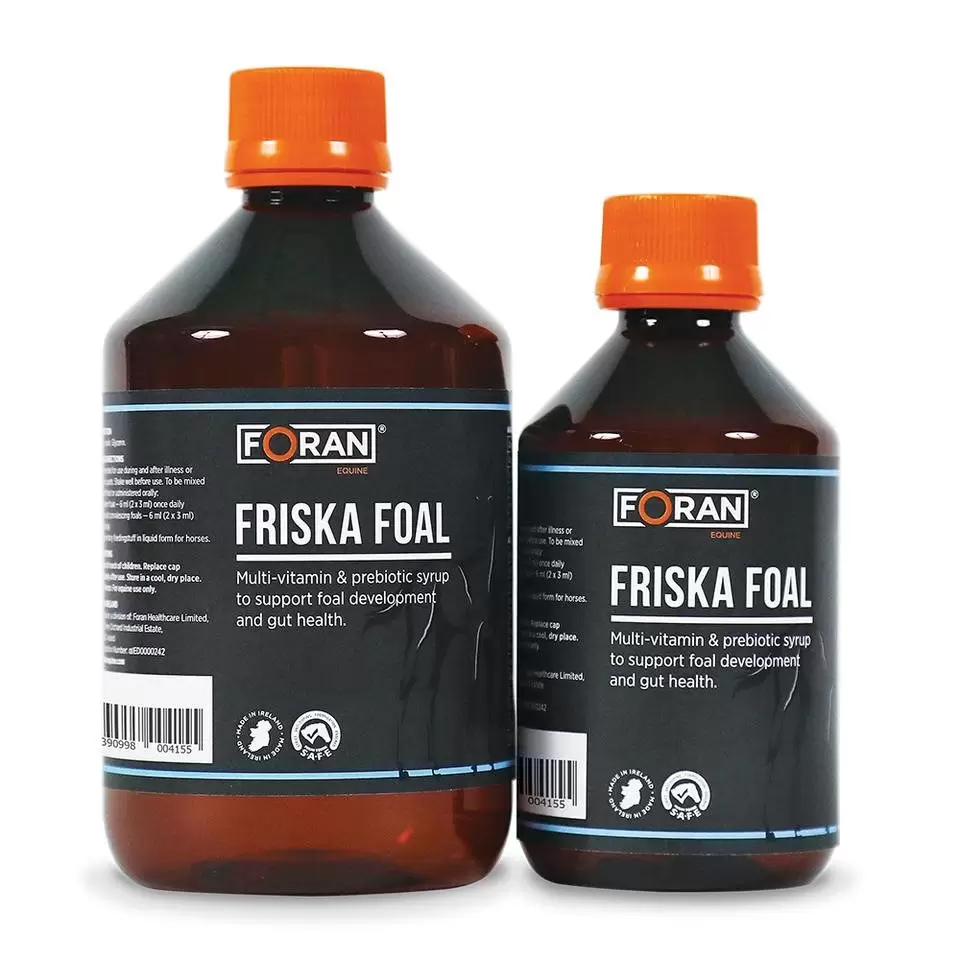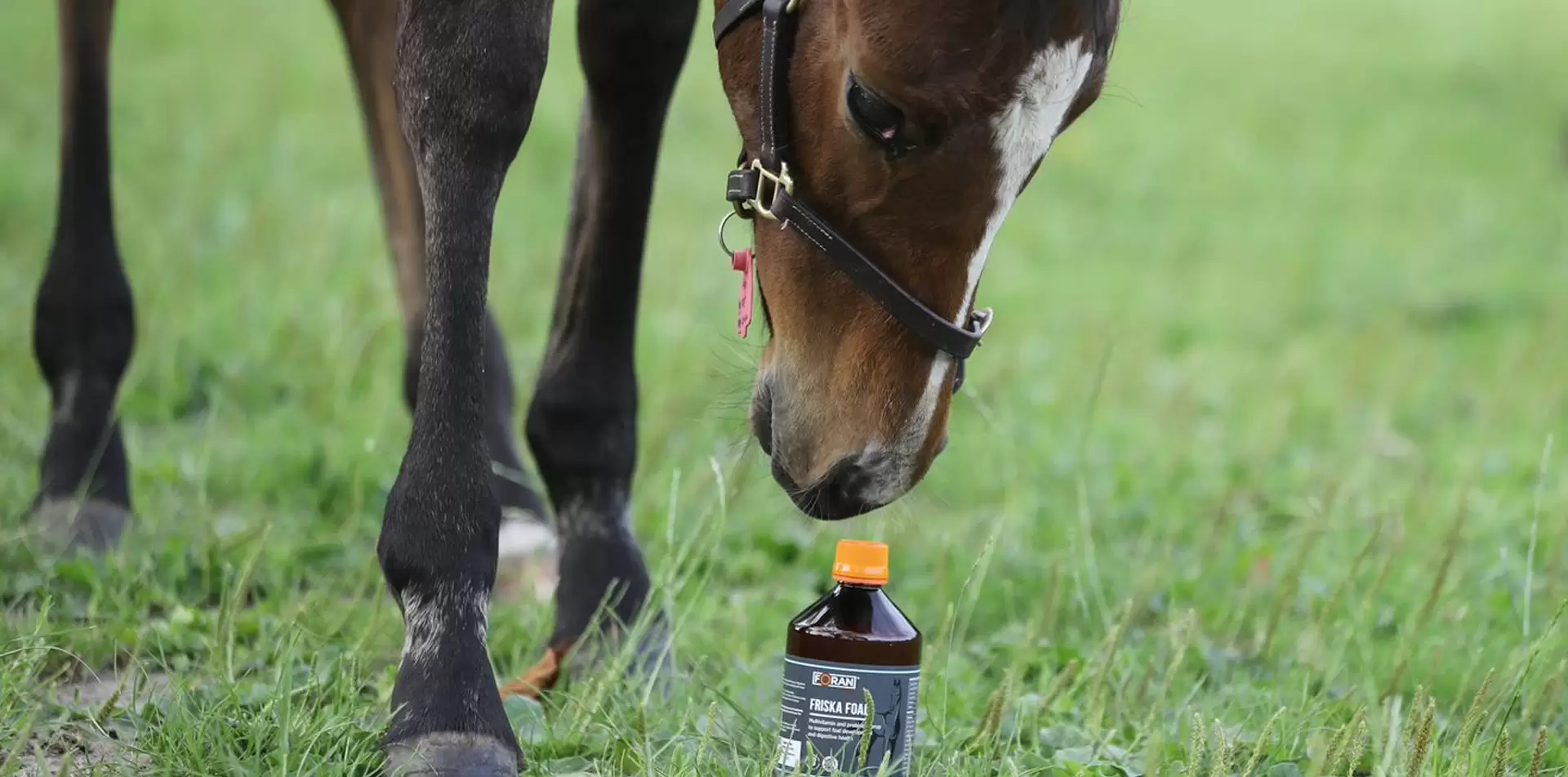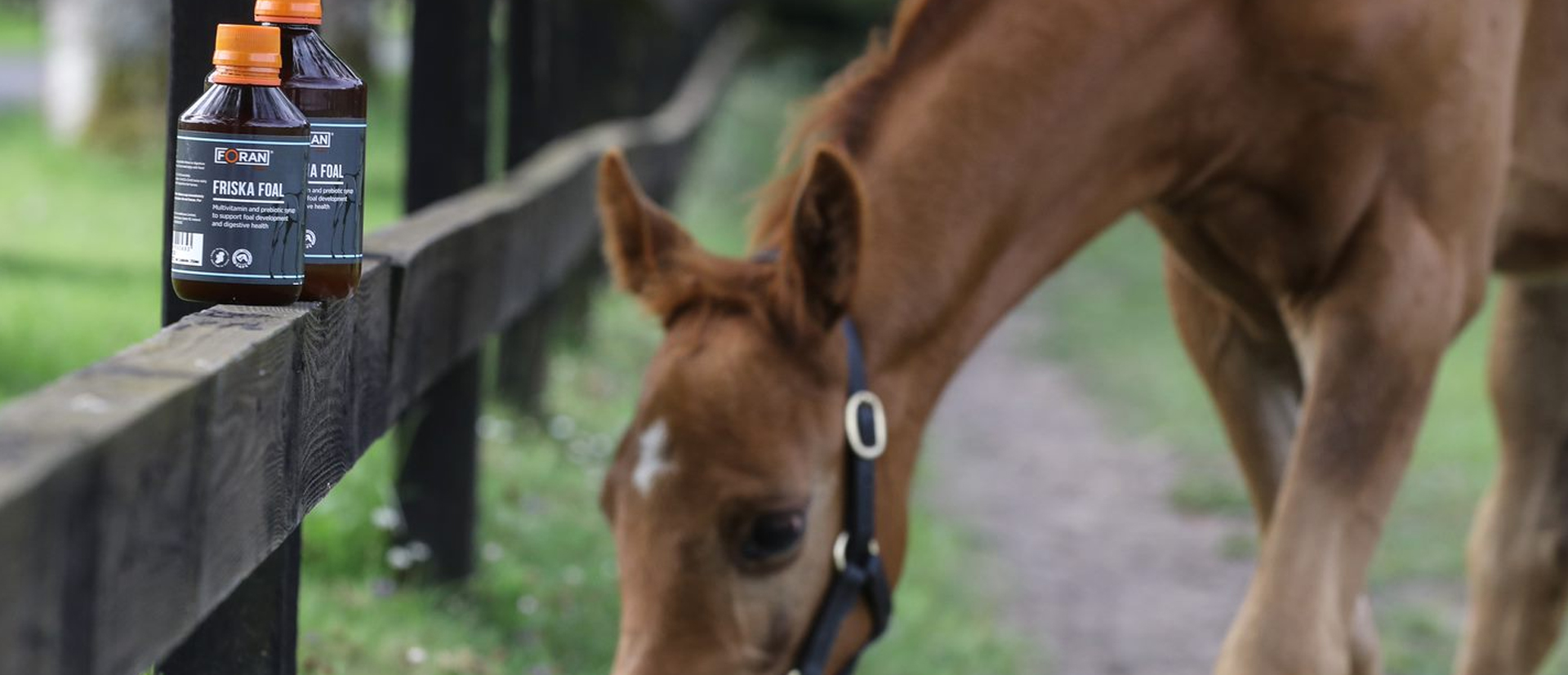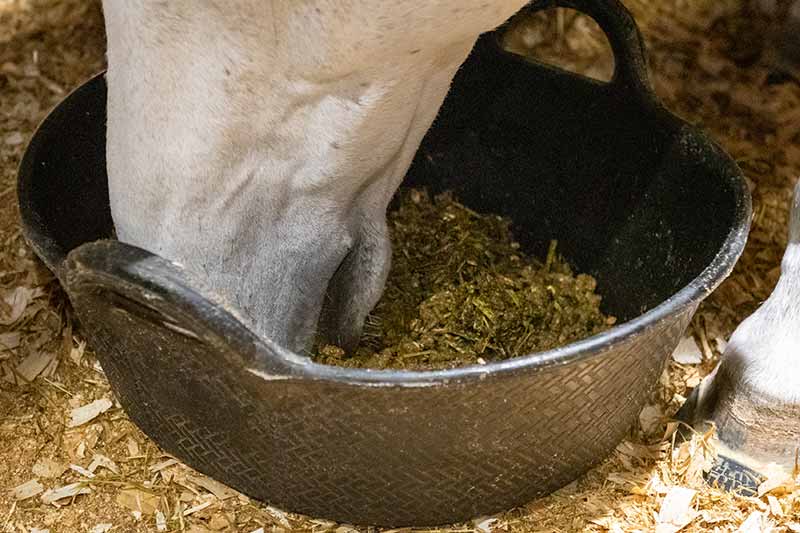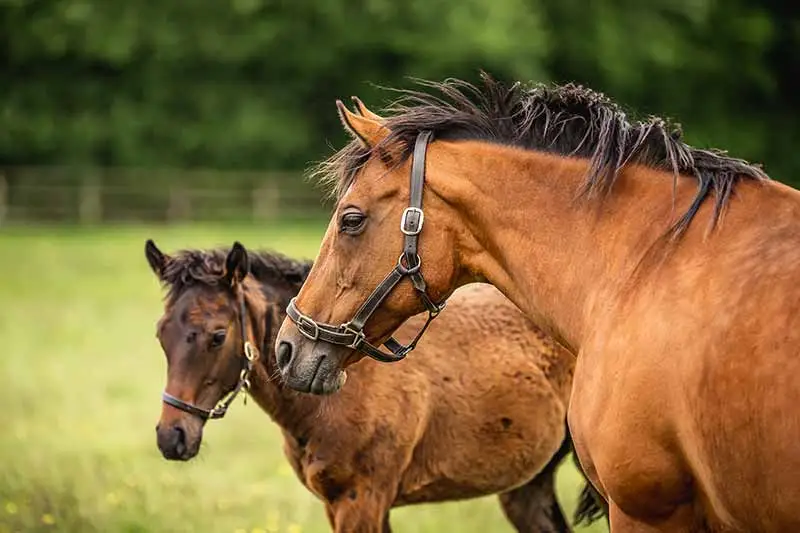
A foal’s early days can potentially shape its future health and performance for the rest of its life, so getting it right will pay dividends forever.
What is colostrum and why is it important for newborn foals?
Commonly referred to as ‘liquid gold’, colostrum is the thick, yellowish, early milk produced by the mare during the last few weeks of pregnancy.
Colostrum is calorie-rich, providing the newborn foal with vital energy to power their early attempts at getting to grips with the world. Essential vitamins and minerals for growth are also included, ensuring that all the foal’s nutritional needs are met. Another equally important role of colostrum is to provide essential immune protection for the foal that is otherwise relatively unprotected.
The newborn foal is immunologically naive, which means it has a functioning immune system but it hasn’t been ‘programmed’ yet. As the foal encounters infectious agents throughout its life, it will develop antibodies to those diseases, which are used as protection in the future. Initially though, the only source of antibodies that a foal has are from colostrum, which are critically important to protect the newborn foal from disease in its first few weeks of life. Foals must receive colostrum within 12 hours of birth for maximum absorption of antibodies to occur.
To give the foal the best start in life, it is important that all is done to ensure that the mare produces the best quality colostrum that she can.
Read more about improving mare’s milk
How do I assess if my young foal is OK?
Being familiar with what is expected from a normal healthy foal is important so you can spot anything out of the ordinary as early as possible. Vital parameters include:
- Heart rate: should be greater than 60 beats per minute (typically 80-120 in first 24hrs)
- Respiratory rate: should be greater than 30 breaths per minute (typically 60 for the first few days)
- Body temperature: the typical temperature range for a foal is 99.5-102°F or 37.5-38.9°C. Newborn foals may shiver at first – this is normal but should stop once the foal has suckled
You can learn a lot about how a foal is doing by simply observing for specific behaviours and when they are achieved after birth:
- Attempting to sit up within 5 minutes
- Has a suckle reflex within 20 minutes
- Attempting to stand within 1-2 hours
- Suckling successfully within 3 hours
- First faeces (meconium) passed within 4 hours
In the early stages, foals will suckle often. Initially, this may be as frequent as every 10-20 minutes and at least 30 times per day. They grow quickly, gaining between 1-3lbs daily in the first few weeks.
Foals are, by nature, creatures of habit and their day is simple and repetitive. Nurse, defecate, urinate, sleep. This routine is broken by a few episodes of frolicking around, whether it be along with their dam or with their friends in a field.
What do I do if my young foal doesn’t seem OK?
The first 24 hours of a foal’s life are critical, and they can deteriorate quickly when things aren’t right. If a foal fails to achieve any of the milestones outlined above, veterinary advice should be sought.
Any change in a foal’s normal behaviour should prompt close observation and if there are any concerns, a vet should be called. Diarrhoea is a common problem in foals and can cause rapid deterioration.
Read more about diarrhoea in foals
Healthy foals grow fast, so poor weight gain can be a sign that the foal is perhaps struggling, or the mare is not producing high quality or adequate quantity of milk. A vet should be contacted, and there are ways to help the mare with milk production.
Read more about improving mare’s milk
Multi-vitamin supplementation can be particularly useful in foals that have, or are recovering from, health problems. The foal’s resources at this time are under stress on many fronts, including growth and developing a strong immune system, so can really benefit from nutritional support. Friska Foal is specifically developed to provide a nutritional boost for foals that are at risk of a nutritional gap, aren’t thriving or have had health problems.
Read more about supporting sick, weak or slow foals
When do foals start grazing and drinking water?
Foals are innately inquisitive and therefore usually start to show interest in whatever their mare is eating a few days after birth. The mare’s milk provides all of the foal’s nutritional needs for the first 6-8 weeks of life, so although the foal shows interest and may even swipe some of the mare’s forage and solid food, it doesn’t need it to meet nutritional demands.
By 3 months of age, when the nutritional value of the mare’s milk declines, it’s important that the foal has been introduced to and is consuming a suitable creep feed. All that early exposure to solid food will have gradually prepared the microflora in the hindgut, which are essential for digestion of the equine diet. The first teeth (incisors) erupt at about 2 weeks old, with the next set (first molars) appearing at around 6 weeks of age, allowing more serious eating of solid food.
A foal will learn to drink water by watching the mare and will usually start drinking voluntarily before the physiological need for water kicks in.
Do I need to supplement my young foal with anything specific?
The rapid growth and development of young foals mean that they have the highest requirement for vitamins and minerals than any other type of horse. Deficiencies in foals (even before birth!) can have potentially life-long, irreversible impacts, so adequate nutritional provision for young horses is hugely important.
Providing a multi-vitamin developed specifically for foals, such as Friska Foal, can help give peace of mind that your foal is receiving everything that they need to support their development. It is suitable for use from birth and foals just love the highly palatable formula.
Specifically supporting the development of the musculoskeletal system is of particular importance in foals that are destined for performance careers. Cal-Gro provides a carefully balanced blend of minerals, including essential calcium and phosphorus in the perfect ratio to support healthy foal bone and joint development.
